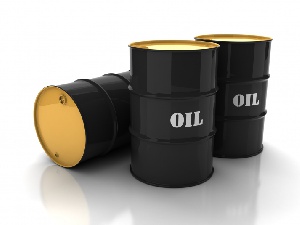More than US$1.18billion is needed this year to buy fuel required to fire thermal power plants in order for the country to meet its electricity demands, Ghana’s energy outlook report has said.
The report authored by the chief energy policy adviser to government, the Energy Commission, says the amount required will expended on natural gas, light crude oil, diesel and heavy fuel oil to power the various thermal plants as the country looks to contain the threat of erratic energy supply on the economy.
According to the report, about US$494million will be required to procure natural gas for the various thermal plants as there is bound to be at least a supply deficit of 65,000 mmscf, as it has been estimated that the gas flow required for fuelling the thermal plants this year will range between 120,000-146,400 mmscf.
The need of fuel for power has risen in recent times as the country’s electricity generation mix has tilted more to thermal power, which this year is expected to account for about 70 percent of the total power generation capacity of the country.
The growing reliance on thermal power now means that electricity providers will raise high bills for consumers to cover fuel surcharges to reflect fluctuations in the price of fuel.
Hydropower a decade ago was the leading source of power, contributing more than half of the country’s electricity generation capacity -- which perhaps explains why the cost of buying power is now high following the reversal in the country’s power generation capacity.
According to the Energy Commission, which is expected to launch its pocket-sized energy market data today, the country this year requires a total of at least 16,700 gigawatt hours of electricity in order to expand the economy by between 4 to 4.5 percent.
The Commission has estimated that transmission grid system peak demand will be between 2,477-2,500 megawatts, which is about 8.5 percent growth over what was projected for 2015.
According to the Energy Commission which is mandated to ensure that energy supply meets demand at all times, even though the expected power supply this year is a significant improvement over that of last year, it will still not eliminate the threat of load-shedding until the country is able to obtain significant imports from neighbouring Cote d’Ivoire to augment supply. This also means that the country’s aluminum smelter, VALCO, will still have to be constrained at one pot-line just as in 2015.
It says but for the low-level of the Akosombo Dam, there would have been enough dependable capacity to eliminate the threat of load-shedding completely, since total dependable capacity would have reached about 3,400 megawatts -- about 200 megawatts more than the minimum threshold of 3,200 megawatts dependable capacity.
Concerns about the country’s power situation have risen sharply in recent times because of its negative impact on the economy.
Last year, when load-shedding reached its peak over a three-year period, the economy recorded its lowest growth in 15 years: expanding by 3.9 percent mainly, on due to a slump in commodities prices and energy supply deficit, which affected the manufacturing, industries and services sectors…the biggest contributors to the country’s GDP.
General News of Monday, 20 June 2016
Source: B&FT













